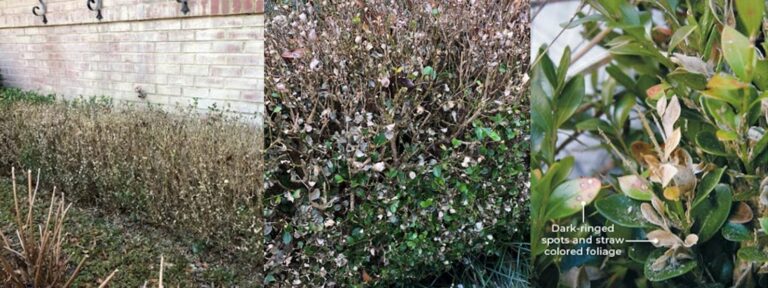Boxwoods have been impacted by numerous insect and disease issues for years. These include leaf miner, mites, root and stem rot diseases. In 2011, the states of North Carolina and Connecticut discovered a new fungal disease that is now known as Boxwood Blight. This is a rapidly spreading disease that can quickly wipe out boxwoods in a landscape. The fungus, Cylindrocladium buxicola, was discovered in Florence, SC and later in an upstate nursery in 2016 according to Clemson Extension. Last year, several cases have shown up in yards in the Greenville area. The most recent case likely came from an out of state landscape company and could have been introduced through pruning tools that were not disinfected.
This disease is fast spreading and difficult to eradicate. Prevention is the best advice, and these are some steps you can take and programs we can offer:
- Disinfect your pruning tools: Lysol spray or wipes, 1% Hydrogen Peroxide Solution, 10% Bleach Solution that is freshly made, or 70% alcohol solution.
- Fungicide Program: Spray preventively or to manage the disease. No fungicides have been found to be curative at this point, but they have been found helpful with management. These are very selective products and have to be rotated to minimize resistance buildup.
- Overhead irrigation and moisture helps spread the disease. Reduce and change irrigation to water the roots and not the foliage.
- Proper pruning and spacing to help with sunlight and airflow in and around the plants.
- Be careful introducing new boxwoods into an existing landscape with boxwoods.
- Tan leaf spots with dark borders
- Leaf browning followed by sudden and severe leaf drop
- Black streaks on green stems that have leaf drop
- White spore clusters typically visible with magnification before plants show above signs. These are sticky and are easily carried.











